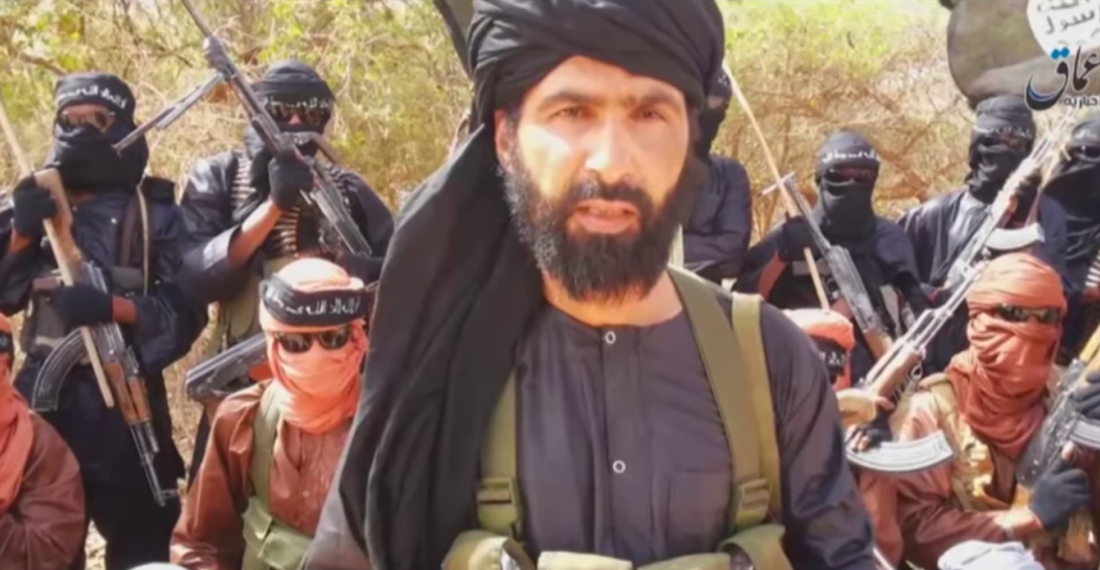Adnan Abou Walid al-Sahraoui, leader of the jihadist group Islamic State in the Greater Sahara (ISGS), was killed by the French army, announced President Emmanuel Macron early on Thursday (16 September).
"This is another major success in our fight against terrorist groups in the Sahel," the French president wrote on Twitter.
This summer, the French executive had already announced the death or capture of several high-ranking ISGS executives by the French task force Barkhane and its partners, as part of its strategy to target leaders and executives of jihadist organisations.
The head of ISGS "died following a strike by the Barkhane force", tweeted the French Minister of the Armed Forces Florence Parly, also welcoming "a decisive blow against this terrorist group. Our fight continues".
ISGS, created by Adnan Abou Walid al-Sahraoui in 2015, was designated as a "priority enemy" in the Sahel, during the summit from Pau (southwest of France), in January 2020. It is notably blamed for most of the jihadist attacks against the military and civilians in the Mali, Niger and Burkina Faso region, known as the "three borders" area, where the jihadist organisation Jama'a Nusrat ul-Islam wa al-Muslimin', affiliated with Al Qaeda, is also very active.






